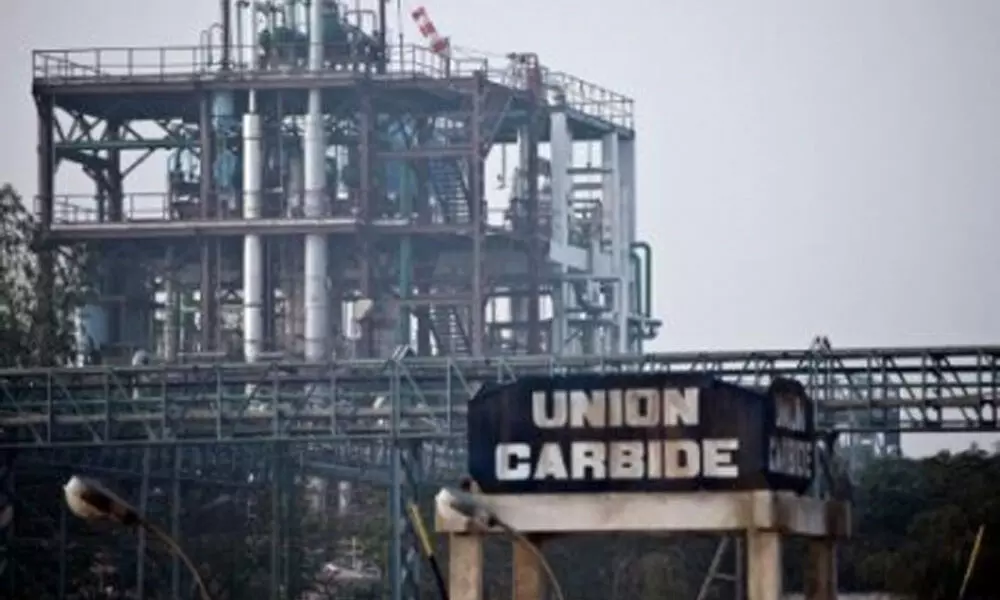India's urban clusters learnt nothing from Bhopal gas tragedy

India's urban clusters learnt nothing from Bhopal gas tragedy (Photo/IANS)
"Callous negligence on the part of the regulating agencies and citizens in emerging urban clusters of India is the primary cause of man-made disasters."
Agra: "Callous negligence on the part of the regulating agencies and citizens in emerging urban clusters of India is the primary cause of man-made disasters." This was the consensus of a meeting of green activists and environmentalists on the eve of the Bhopal Gas Tragedy day.
Several speakers recalling the grim Bhopal tragedy of 1984, criticised the general attitude of laxity and carelessness that had become part of our national character.
Green activist Dr. Devashish Bhattacharya said: "There is a Bhopal in every locality, in the form of illegal godowns, factories, workshops, choked sewer lines emitting toxic gases, cold storages, oil mills with steam boilers. Government agencies entrusted with the task of regular monitoring and inspecting show no urgency or seriousness, with the result there is a major fire outbreak almost every month in Agra in some residential area or the other."
The Petha industry, the shoe factories, and hundreds of illegal manufacturing units in colonies not only add to the pollution level but pose a hazard to the safety of life, Bhattacharya added.
River Connect Campaign member Jugal Kishor said the city's traffic system itself was so chaotic and accident-prone leading to frequent loss of life and property on roads. This was because no one bothered about following rules and restrictions.
Senior citizen Sudhir Gupta told IANS "the attitude of carelessness begins right from home, from kitchen and bathrooms. People are neither careful about gas cylinder pipelines nor about electrical fittings which often lead to short-circuiting."
Right now the whole city has been dug up and frenzied construction activity is on in the city. The builders and colonizers who have used every vacant plot of land in the city, have not cared to connect to sewer lines.
"A large number of multi-storeyed buildings are directly pumping sewage and waste into the earth through borings. This is simply criminal," activist Rahul Raj told IANS.
Often fire protection units or extinguishers failed to work, and the lifts in the high-rise buildings were not periodically tested for safety, Rahul added.
The consensus was to sensitise people towards health hazards from carelessness. A sustained campaign to educate the younger people towards existing norms and standards to inculcate a sense of responsibility and concern for others was the need of the hour.
"The lessons of Bhopal Gas Tragedy should be learnt and widely publicized."
Activists demanded that the state pollution control board and other regulatory bodies should ensure strict compliance with safety norms in the industries, as the number of accidents due to negligence and lack of mechanisms to monitor critical types of equipment like boilers, was on the rise.
So many deaths have occurred due to failure to follow the rules books. Cases of gas leaks from cold storages, boiler blasts, hazardous effluents being discharged in community water resources without treatment, gutter cleaning mishaps, etc., have resulted in the loss of life and property but the official agencies have not shown a sense of urgency in dealing with the problems.
"One can only be grateful to God that tragedies like the one in Bhopal are not repeated. Our level of preparedness for disaster management is tardy and faulty."
Activists also urged the government organisations to monitor and enforce industrial safety norms to ensure life or property was not lost as a result of human negligence.
Surendra Sharma, a hotelier, said: "In urban areas, garbage dumps at every corner, leather cuttings from shoe factories piled-up or burnt, hazardous chemicals from tanneries and petha units flowing into the Yamuna river, and fire in shoe units are a major threat to the environment and human survival.
Rajnish, an activist said training in safety and precautions must begin from schools. "In most accidents, innocents or pedestrians become victims of others' carelessness," he said.
A large number of locals in the Taj city feel that the situation was alarming as city sewage was being directly pumped into the earth through borewells. Any day, there could be an explosion, as methane and other noxious gases are being produced. The city is perched on explosives.
Nidhi Pathak, a city resident, highlighted the dangers involved in bangle-making in the tiny home units of Firozabad. "They use LPG cylinders to melt glass wires, emptying big cylinders into smaller ones and transferring the highly inflammable gas."
Padmini, a homemaker, pointed to the lurking dangers at home, in kitchens and bathrooms. "An attitude of apathy and carelessness is visible, even while crossing roads," she said.










